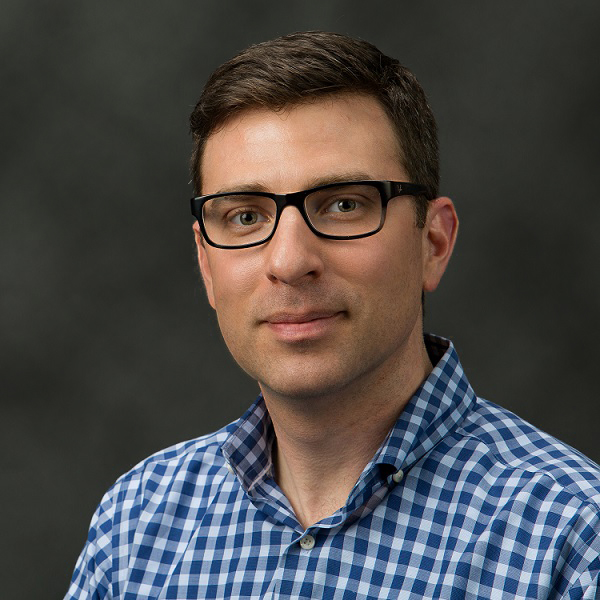
BIOE 500 Seminar Series - Dr. David Eddington
- Event Type
- Seminar/Symposium
- Sponsor
- Bioengineering Department
- Location
- Everitt Room 2310
- Date
- Apr 2, 2024 11:30 am - 12:20 pm
- Views
- 146
- Originating Calendar
- Bioengineering calendar
David Eddington, Ph.D.
University of Illinois at Chicago
Professor | Department of Biomedical Engineering
Title: Microfluidic Control of Microenvironments
Abstract: Microfluidic tools allow researchers to engineer cellular microenvironments in ways not possible with other technologies or methods. In this talk I will present my lab’s work in developing dissolved gas control devices along with a model of genetic transformation in microfluidically generated aqueous droplets. Gas control with microfluidics is possible due to the high permeability of polydimethylsiloxane to oxygen, carbon dioxide, and nitrogen. By having gas channels adjacent to a cell culture chamber we can alter the gas concentration in the culture chamber by altering the composition in the gas. Due to the small scale, gas equilibrates in seconds and allows precise control of this biological variable. Additionally, we have developed microfluidic inserts for multiwell plates that allow higher throughput experimentations and have begun using these devices to control pressure waveforms exposed to cells. For our work with genetic transformation, we are entrapping Streptococcus pneumoniae in 10mm diameter aqueous droplets and triggering them to undergo genetic transformation within the droplets. Due to the confined space of the droplet, the lysed bacteria’s DNA is taken up more readily by the attacking bacteria. We have transformed cells, sequenced their genomes, and compared the amount of DNA taken up in microdroplets as compared to planktonic cultures and found bacteria in droplets take up larger chunks of DNA. This tool can be used to study fundamental questions about the transformation process which is critical in understanding how to combat the rising threat of antibiotic resistance.
Bio: David T. Eddington received a B.S. degree in materials science and engineering from the University of Illinois at Urbana-Champaign, a Ph.D. degree in biomedical engineering from the University of Wisconsin-Madison and did a postdoc in the Health Sciences and Technology program at MIT. He is currently a Professor in the Department of Bioengineering at the University of Illinois at Chicago. His research lab focuses on developing novel solutions to current unmet experimental and clinical needs through applying simple microfabricated devices.